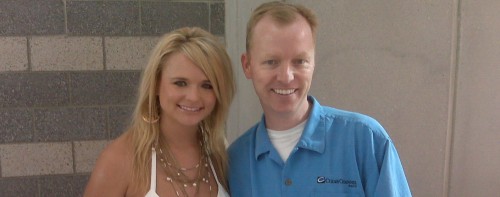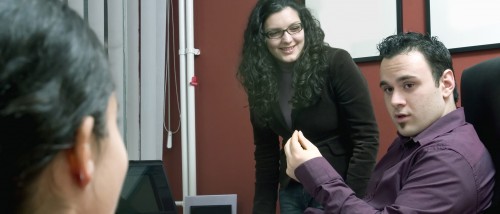Podcast: Play in new window | Download
Subscribe: RSS
Confidence To Begin A Podcast
I’m Erik K. Johnson, founder of Podcast Talent Coach. I help people refine their content to transform their information into engaging entertainment so that they can convert their podcast audience into powerful, profitable relationships.
Have you ever struggled with your confidence to launch or record an episode of your podcast? Have you worried that you were just pretending to know what you’re doing? That someone might find out that you didn’t really belong amongst the podcast professionals?
I’ve been there. I was at that point when I started in broadcasting. While in college getting my degree in architecture, I became a party DJ to make some extra cash. Music had always been a big part of my life. I had been a musician since I was 11. However, I had wanted to be an architect since 6th grade. Getting my architecture degree was never in question.
Around my junior year of architecture school, I started becoming disenchanted with the field. It was then that I picked up a part time summer job at a radio station where my brother worked. Just to make some extra cash. As my passion for architecture waned, my passion for radio grew. Next thing you know, I’m taking classes in the College of Journalism and becoming the music director of the college radio station.
My music director position at the college station turned into another part time commercial radio job. That position eventually became full time.
Architecture was still part of my life. I was nearly done with my degree and didn’t want to throw it all away at that point. So, I finished my degree in architecture and continued to work in radio. Oddly enough, my only architecture job came while I was still in high school.
When I began in radio, the impostor syndrome heavily kicked in. I had an architecture background. What right did I have to be on the radio? Who was I to think I was in a position to be amongst these radio guys who had been doing it for many, many years and had paid their dues. I felt like I was playing dress up and pretending to be one of them. It took me years to get over that and build the confidence to perform on a daily basis.
After doing it for 25 years, I got to the point where I was programming multiple radio stations at the same time. Some of those station were recognized with national awards from the National Association of Broadcasters. The stations ranked #1 quite often. My own show was regularly #1. I built the confidence within myself to deliver content that was compelling and connected with my audience.
When I launched my podcast, I quickly went back to the beginning. The impostor syndrome kicked in again. Who was I to think I could build a successful podcast amongst these greats that had been doing it for years? Dave Jackson at the School of Podcasting has been podcasting since 2005. I’m just starting. How can I possibly think I belong in the same arena as Dave?
Then, I started thinking about my story. I had been here before. That helped me shake the impostor syndrome and put out my content.
That’s what I want to help you do. I want to be that cheerleader for you if you don’t have the history that I have to overcome that little voice inside your head doubting your ability. You can do it. You belong. You have just as much authority on your opinion as anyone. Let’s get it out to the world.
It is fairly simple to set up a mic, mixer and laptop, load up some software and record some audio. Setting up a website with WordPress, creating a Libsyn account and posting a show isn’t very complicated. Even if you are not very technically savvy, there are great people like Dave Jackson and the School of Podcasting that can help you with every step along the way. He even has a great class at www.HowToPodcast.com. You’ll have a podcast launched in 6 weeks.
Creating the platform is only the first step. Creating great content is up to you. Your content isn’t something you can outsource. You need to find the confidence to put your thoughts and feelings out into the world.
How do I bootstrap to begin? Make it simple. Get an inexpensive microphone, like a $60 ATR-2100 or a $99 Blue Yetti. Pick up an inexpensive mixer like a $99 Yamaha 4-channel. Get a free WordPress site. Create a Libsyn account for $15 a month. You’ll need a computer and some free Audacity software. If you already have a laptop, you’re up and running for under $200. Again, Dave Jackson has a whole list of recommendations for you at www.SchoolOfPodcasting.com. I leave the technical stuff up to him.
My goal is to transform your content and beef up your confidence.
So, how do you define your niche? Will anybody really care? It is easy for the impostor syndrome to sneak in here. Your internal impostor will tell you nobody cares about that topic. Your niche is too small and nobody will come. You’ll be talking to yourself.
Fight it. Your niche size doesn’t matter as much as the passion of the niche community. If you have a group of people that are passionate about and loyal to a particular subject, run with it.
The more narrowly you target your niche the better. If you are interested in fishing, pick a small niche. If you love fly fishing, but create your show around fishing in general, you will find it tough to build loyalty. If your show is only on fly fishing, you will primarily attract those interested in fly fishing. The niche is smaller than fishing in general. However, every show will be of interest to your audience.
If your show is “The Fishing Show” and all about fishing, you’ll be hit and miss. One week you talk about fly fishing. The next week you discuss deep sea fishing. Now, you fly fisher friends only get what they seek on occasion. You aren’t catering specifically to them. People will only check our your show now and then. You will find it difficult to build a passionate tribe.
The audience for “The Fishing Show” looks like a bigger audience than “The Fly Fishing Show”. But, it is deceiving. The passion lies in the niche.
Be confident in your topic. You will start slowly. But, it will grow. Stay the course.
How do you get ready? How do you overcome the pre-launch jitters? Planning your podcast will help relieve a bit of the anxiety. If you know where you’re going, you can stay focused on the goal and fight through the self doubt. Plan your show before you begin.
Let’s discuss the 5 Speech class basics and how they pertain to your show.
1. Lead with a provocative point – capture their attention right at the beginning.
2. Dazzle with details – make the story come to life.
3. Take the first exit – Get out when you have the first opportunity.
4. Don’t repeat yourself and overstay your welcome – In talk radio, it’s called the call circle.
5. Include a call to action – this is the whole reason you’re doing a podcast and creating a tribe.
Have confidence in your content. Fight the impostor syndrome. Do all you can to push forward and get your content out.
When you plan your show, it makes it easier to stay focused on the goal. Know what you hope to communicate on this episode. Lay out how you plan to communicate that information. Then, define your intro, details and exit. Define your call-to-action and determine where you plan to incorporate it into the show.
Now, all you need to do is record the show and post it for the world to hear. The more work you do ahead of recording, the easier it is to believe in yourself while the show is rolling. Remember, because it is fun is the main reason you are podcasting. Enjoy the process.
This week, plan your show.
Determine the topics for the show.
Lay out your intro, details and conclusion for each topic.
Define your call-to-action.
You can find a free show prep sheet online at www.PodcastTalentCoach.com.
Let me know how I can help. E-mail me at anytime at Coach@PodcastTalentCoach.com.
Tell the truth, make it matter and have fun.









































